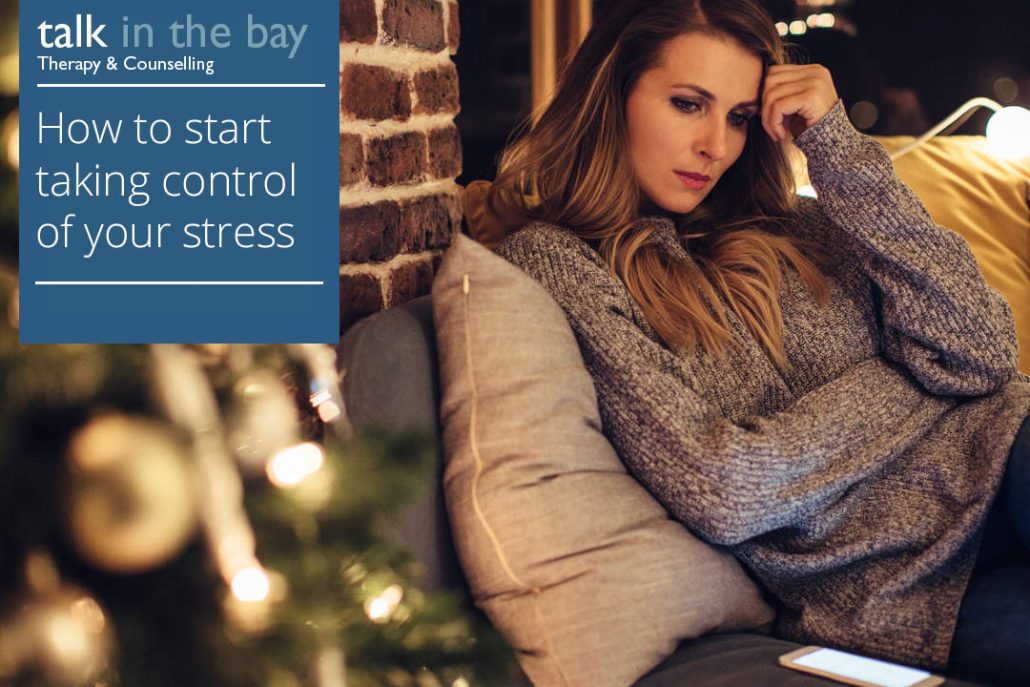Stress can be your enemy or friend | Here are some first steps of how you can control it
This week at Talk in the Bay, we want to look at the issue of stress and how it can affect us in different ways. The word ‘stress’ and many of its variations are phrases that we all recognise and use – “I’m so stressed, you stress me out, this job is stressful, I’ve been under a lot of stress lately.” It is so much part of our vocabulary that we hardly notice we use the word at times. Indeed, physiologically, stress is a normal and natural reaction to perceived danger or challenging situations:
“Through hormonal signaling, the perception of danger sets off an automatic response system, known as the fight-or-flight response, that prepares all animals to meet a challenge or flee from it.” (Psychology Today, 2018)
It seems we all experience stress or feelings of stress at times in our lives for many different reasons. So, if it’s so ‘normal’ then why could it be a problem? If we all experience stress, then surely it’s no big deal? It’s about what it means to you as an individual. Maybe the word stress is used too lightly to describe really difficult situations that impact on us in a negative way. How can we make our lives more ‘stress free’? How do we recognise when how we feel has gone beyond what we understand as stress, and has become something more debilitating, and is having a more serious effect on our health and wellbeing?
Balance responsibilities for others with responsibilities for yourself
In the last year a study of 4619 people in the UK showed that 74% felt so stressed they have been overwhelmed or unable to cope. So, nip it in the bud! Ask yourself, are you taking on too much right now? Try to balance the responsibilities you have for others with the responsibilities you have for yourself. Set time aside for yourself and take breaks. If you catch yourself rushing around trying to get ready for that Christmas party or running to town to buy that last minute gift, stop. Just for 5 or 10 minutes. Find the nearest cafe or sit down at home and try to clear your mind. Visit Headspace.com (https://www.headspace.com) and let it guide you through as little as 3 minutes of meditation, or begin a 30 day journey with their ‘letting go of stress’ pack.
The starting points of reducing stress
If you find yourself falling asleep while meditating, don’t worry, that sleep is exactly what your body has asked for. Often it is hard to fall asleep or stay asleep when we are stressed. There are a lot of changes we can make to help our bodies get ready for sleep. If we have a busy schedule and need to set the alarm in the morning sleepyti.me (https://sleepyti.me/) can help us plan to set an alarm when we should fall asleep. The Mental Health Foundation highlight the four pillars of good sleep, easily remembered by the acronym HEAL:
- Health – a blocked nose or pain somewhere can prevent us from sleeping. Think about if there are any easy steps you can take to reduce these symptoms.
- Environment – Remove all technology from the bedroom, if you find yourself looking at your phone when you’re in bed, get up and go to a different room. Don’t sit there all night! Temperature and noise can make a difference to your sleep as well. Are there any changes you can make to be more comfortable – ear plugs, white sound machine, eye mask or black out curtains?
- Attitude – Find relaxation techniques that suit you. If headspace sleep meditation is not for you, find your guide at Sleepio (https://www.sleepio.com/articles/) if you’re a shift worker, pregnant or need to overcome jetlag. If your sleep problems last for more than a month, cognitive behavioural therapy (CBT) may help develop a healthier sleep pattern and break the negative cycle of lack of sleep. At Talk In The Bay our therapist, Sonia, provides online CBT for insomnia. So you don’t even have to leave your house!
- Lifestyle – Your daily habits such as eating and exercising can affect your sleep too. Rice, dairy and oats can produce chemicals that make you want to sleep. Aha! You might’ve thought I know alcohol does, while yes it may make it easier to fall asleep the rest of the night might become restless as the alcohol wears off. Exercising can both help get your day started and your body ready for bed as long as it’s done earlier in the day
(https://www.mentalhealth.org.uk/publications/how-sleep-better)
Don’t be too hard on yourself if you make mistakes or you don’t follow a strict routine, or even if you do. Get to know yourself and your own specific needs and don’t let your inner critic take over.
Making our lives ‘stress free’ may be an unrealistic and an unnecessary goal. Stress can be good! If it is short-lived, stress can make us perform better and alert us to danger. However prolonged stress may cause serious health problems such as heart-disease and depression. Prolonged stress may also impact negatively on our relationships both at home and at work.
If we have developed unhealthy ways of coping with ongoing stress such as becoming angry or shutting down this will impact on communication. If you think you may be struggling with prolonged stress or coping with stress in an unhealthy way, seeking professional help to heal and change is a solution. Other options are to seek assistance via your GP or The Mental Health Foundation also offers some great tips and pointers on their site.
If you feel like you have tried it all and stress is becoming unbearable our therapists at Talk In The Bay can offer professional help, find our contact details below and don’t hesitate to call if you have questions.



